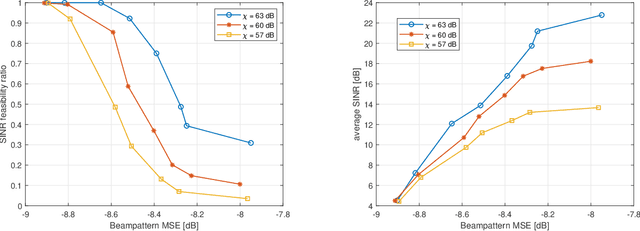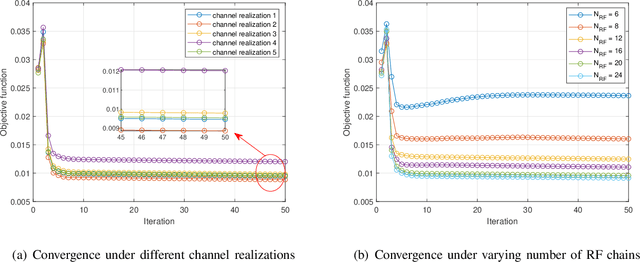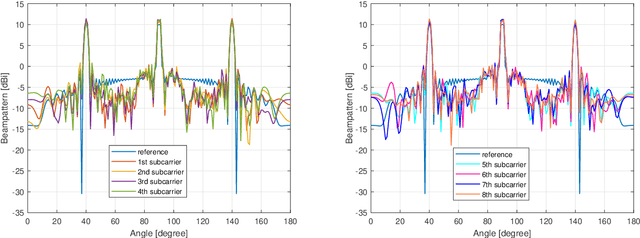Joint Communication and Sensing in RIS-enabled mmWave Networks
Paper and Code
Oct 07, 2022



Empowering cellular networks with augmented sensing capabilities is one of the key research areas in 6G communication systems. Recently, we have witnessed a plethora of efforts to devise solutions that integrate sensing capabilities into communication systems, i.e., joint communication and sensing (JCAS). However, most prior works do not consider the impact of reconfigurable intelligent surfaces (RISs) on JCAS systems, especially at millimeter-wave (mmWave) bands. Given that RISs are expected to become an integral part of cellular systems, it is important to investigate their potential in cellular networks beyond communication goals. In this paper, we study mmWave orthogonal frequency-division multiplexing (OFDM) JCAS systems in the presence of RISs. Specifically, we jointly design the hybrid beamforming and RIS phase shifts to guarantee the sensing functionalities via minimizing a chordal-distance metric, subject to signal-to-interference-plus-noise (SINR) and power constraints. The non-convexity of the investigated problem poses a challenge which we address by proposing a solution based on the penalty method and manifold-based alternating direction method of multipliers (ADMM). Simulation results demonstrate that under various settings both sensing and communication experience improved performance when the RIS is adequately designed. In addition, we discuss the tradeoff between sensing and communication.
 Add to Chrome
Add to Chrome Add to Firefox
Add to Firefox Add to Edge
Add to Edge